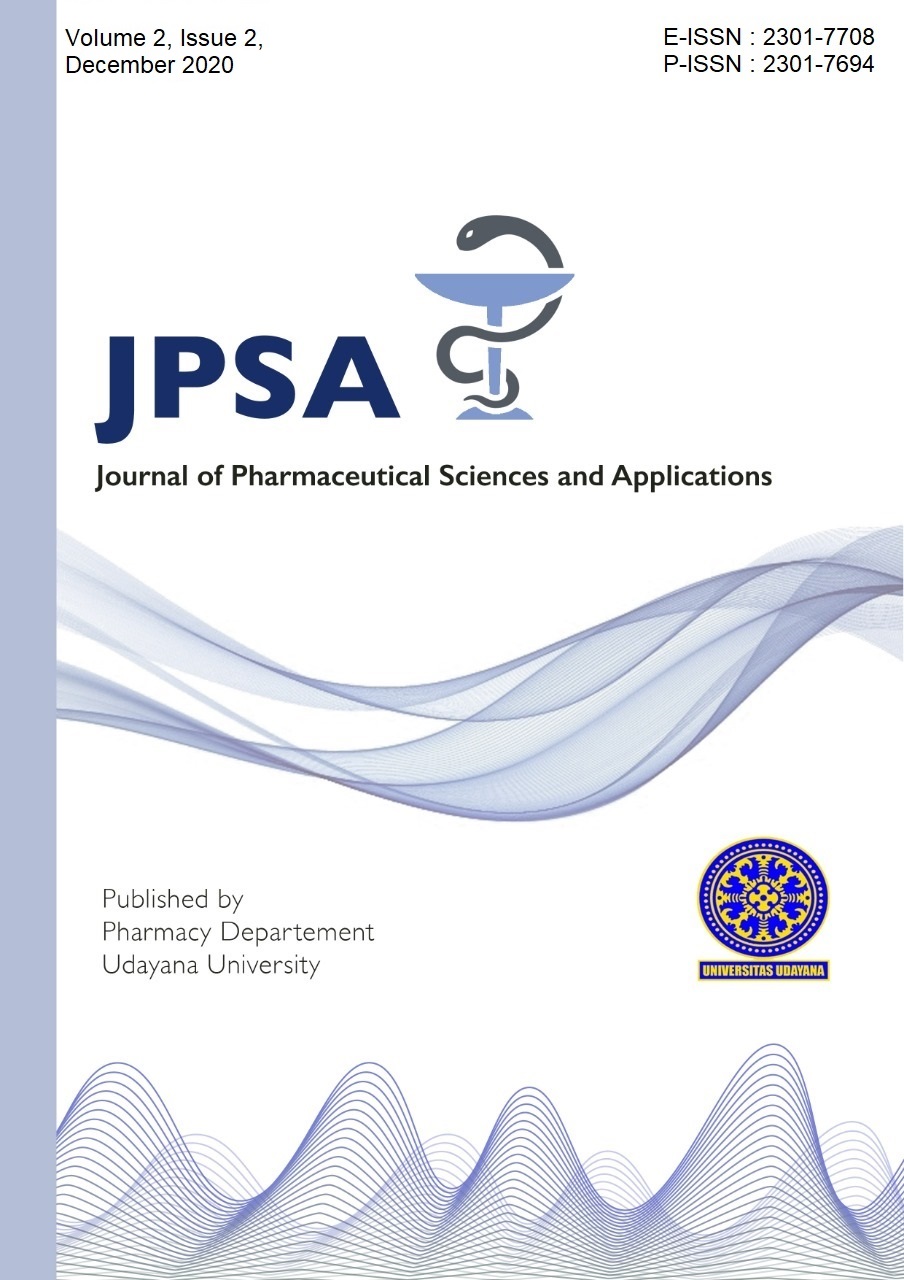A NARRATIVE REVIEW OF ZINGIBERACEAE FAMILY AS ANTIBACTERIAL AGENT FOR TRADITIONAL MEDICATION BASED ON BALINESE LOCAL WISDOM
Abstract
Background: One of the native plants from Indonesia that have been widely used for traditional medication as an antibacterial comes from the Zingiberaceae family. Based on Usada Bali, the Zingiberaceae family used to treat digestive, respiratory, and skin diseases. Objective: This literature review aimed to discuss antibacterial activity from the Zingiberaceae family and see its validity as a traditional use as antibacterial based on Balinese local wisdom medication method (Usada) with its scientific evidence. Methods: The method of this literature review is the study of literature from several scientific publications in national and international journals about the antibacterial activity of the Zingiberaceae family. Results: Several studies showed that the Zingiberaceae family has an antibacterial activity with various inhibitions depended on the type of bacteria. Conclusion: The Zingiberaceae family mentioned in Usada Bali has been scientifically proved to have antibacterial activity, so it shows the validity as a traditional use as antibacterial based on Usada with its scientific evidence.
Keywords: Zingiberaceae, antibacterial, Usada
Downloads

This work is licensed under a Creative Commons Attribution 4.0 International License.
Authors who publish with this journal agree to the following terms:
Authors retain copyright and grant the journal right of first publication with the work simultaneously licensed under a Creative Commons Attribution License that allows others to share the work with an acknowledgment of the work's authorship and initial publication in this journal.
Authors are able to enter into separate, additional contractual arrangements for the non-exclusive distribution of the journal's published version of the work (e.g., post it to an institutional repository or publish it in a book), with an acknowledgment of its initial publication in this journal.
Authors are permitted and encouraged to post their work online (e.g., in institutional repositories or on their website) prior to and during the submission process, as it can lead to productive exchanges, as well as earlier and greater citation of published work. (See The Effect of Open Access).

This work is licensed under a Creative Commons Attribution 4.0 International License.


 HOME
HOME
















